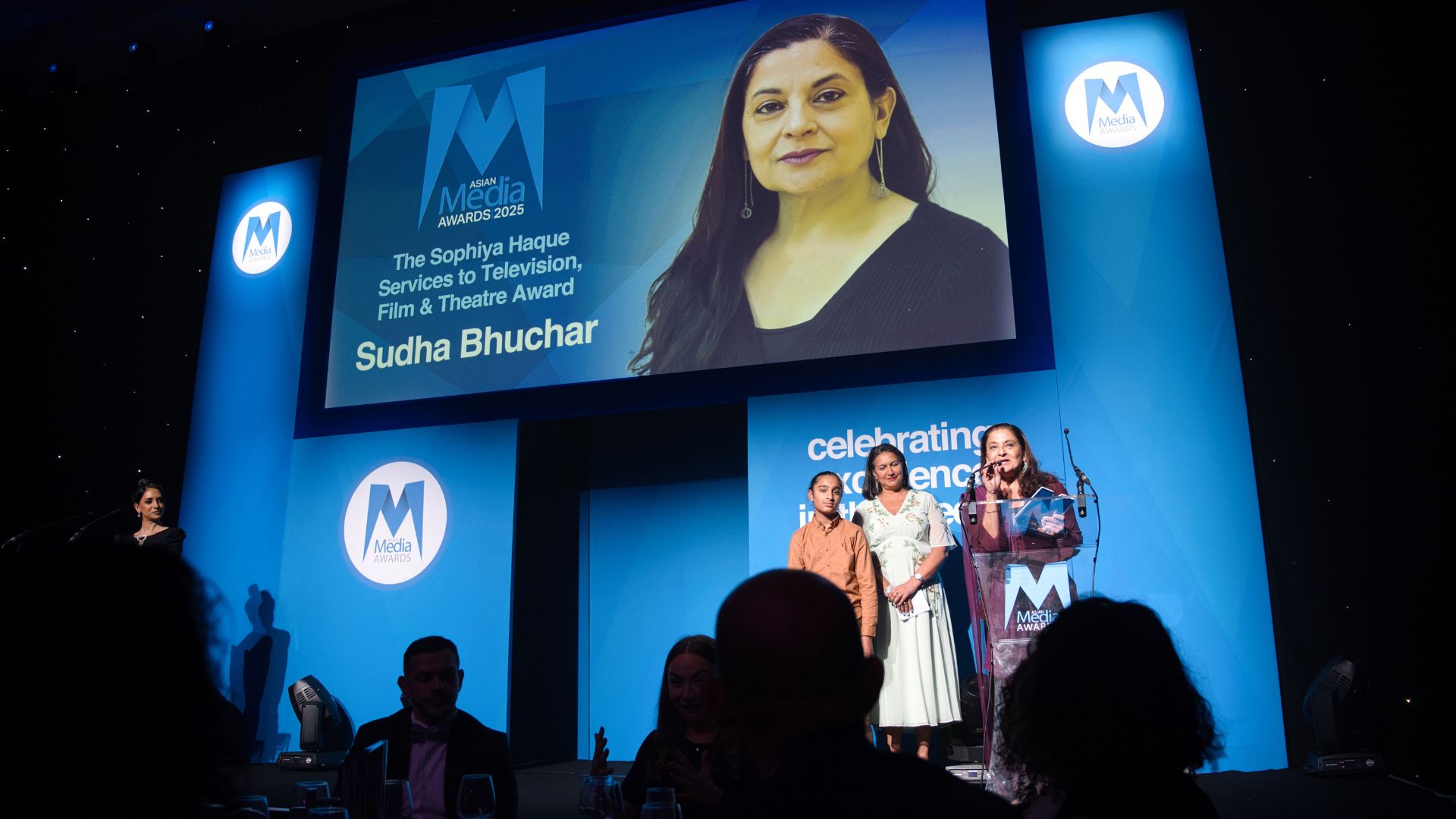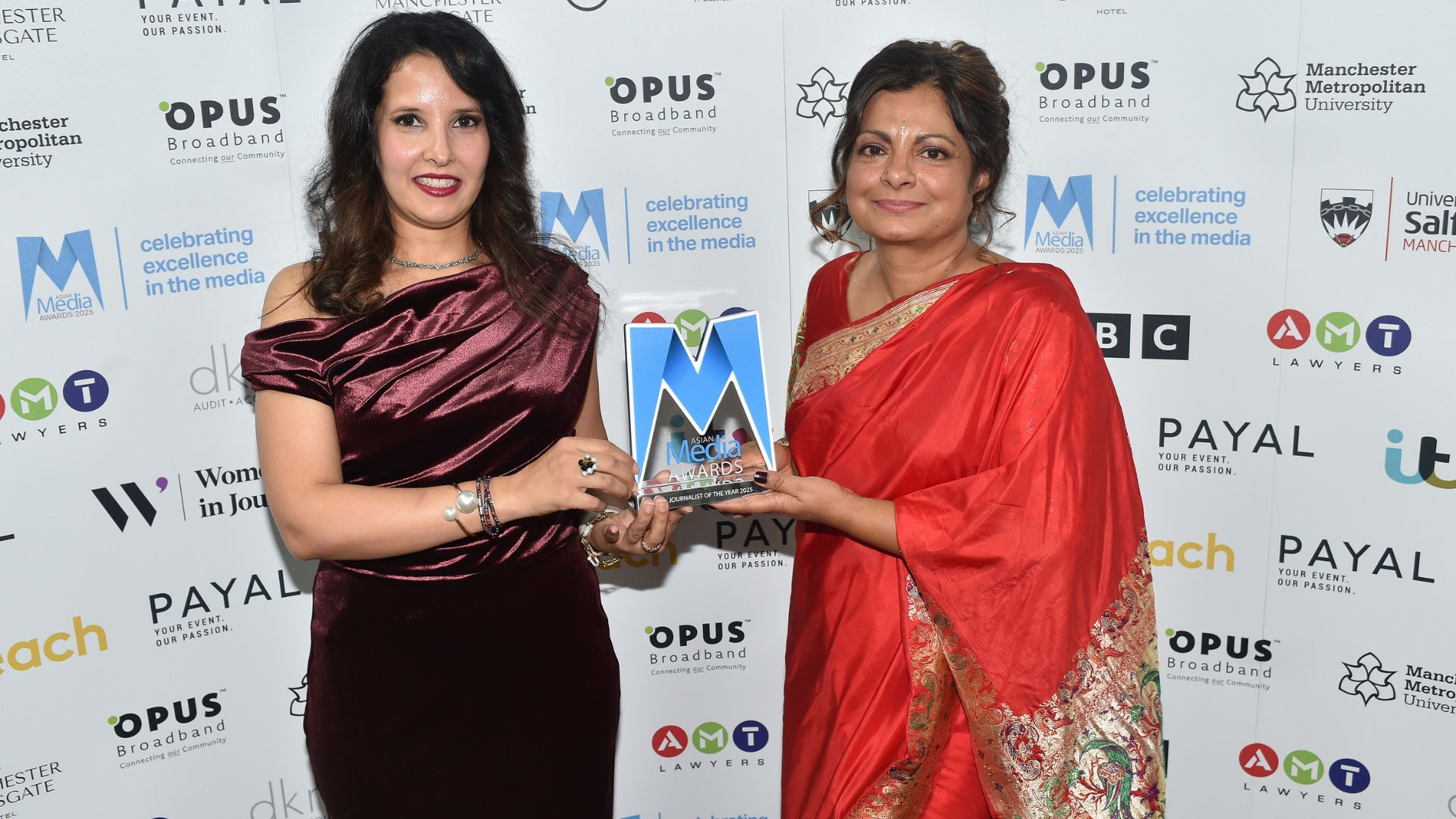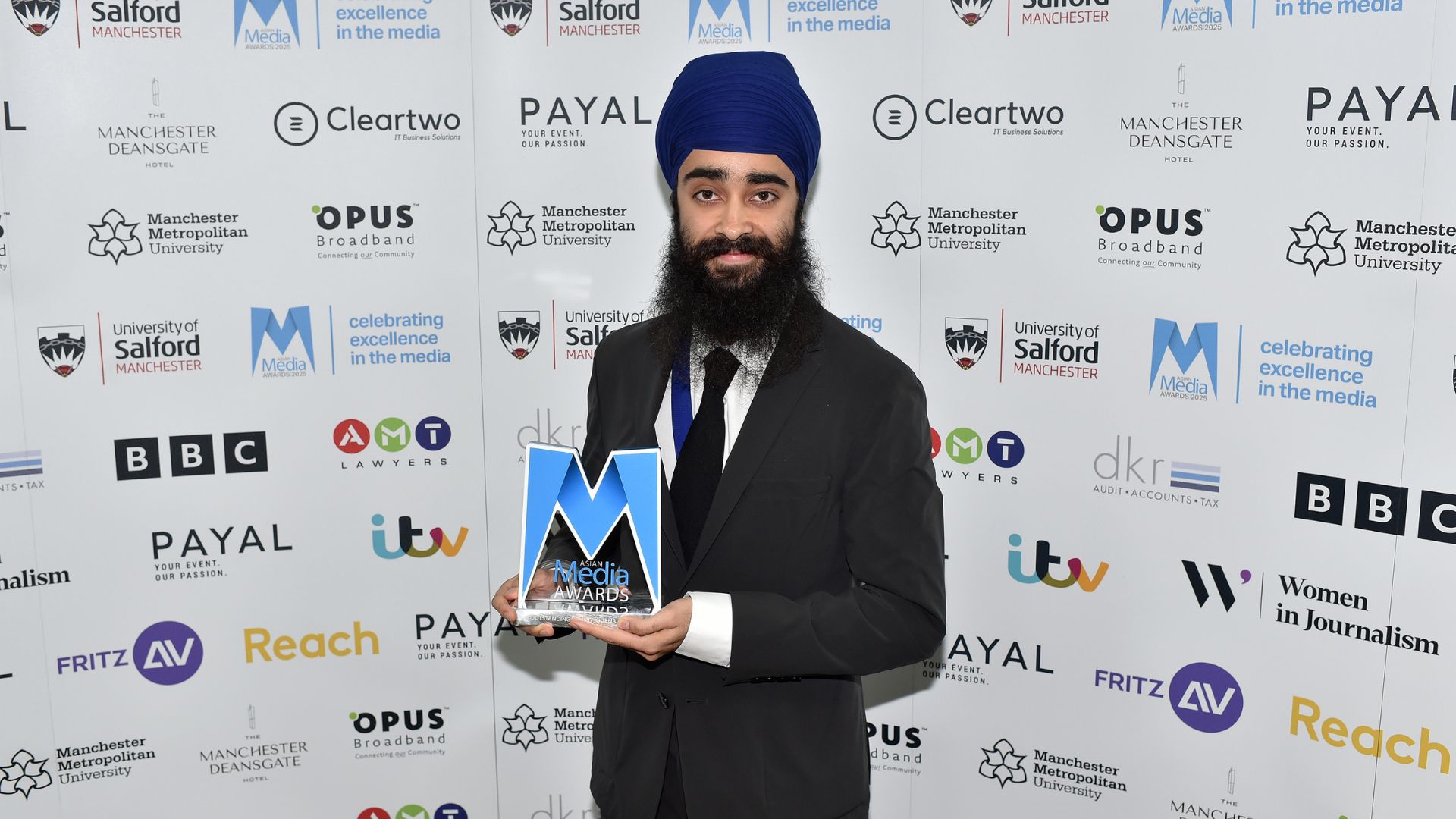Media pioneer Waseem Mahmood who has over four decades transformed how media serves diverse communities as presented the Outstanding Contribution to Media Award.
Journalists and filmmakers joined content creators and actors at the 13th Asian Media Awards in Manchester.
The awards celebrate achievements in a range of categories in journalism, investigations, TV, radio, stage, online and creative media.
The ceremony is supported by the University of Salford and took place at The Manchester Deansgate Hotel on Friday (October 31). It follows a shortlist announcement which was held at BBC Broadcasting House in London.
The 2025 ceremony was hosted by Sky Sports presenter Bela Shah.
Over the past four decades the career of Waseem Mahmood has transformed how media serves diverse communities.
One of the pioneers of Asian programming at the BBC in the eighties, he went on to begin the satellite revolution of Asian TV channels in the 1990s, by launching TV Asia which was later acquired by Zee TV.
At the time it was Europe’s first subscription satellite and cable channel specifically for the Asian community.
His later work in conflict zones helped to create communication and policy strategies for governments and broadcasters worldwide.
Mahmood paid tribute to his former colleagues, saying: “I accept this award on behalf of my colleagues from the BBC Asian Unit — Krishan Gould, Yusuf Aziz, Bish Mehay, and Ashok Rampal. They were true pioneers of Asian media in the UK, and it’s a shame that their contributions have largely been forgotten.
“Every single one of us in this industry owes them a debt of gratitude.”
He said “When I started at the BBC, there were only five of us producing network television — and perhaps half a dozen more Asians in the industry.
“It’s wonderful to see how far we’ve come, but the conversations we’re having now about representation and diversity are exactly the same ones we were having forty years ago.
“Not much has changed.
“Just last year I was developing a project with a commissioner, only to be told by his boss that they already had their ‘brown project’ for the year. We have to be seen as more than a box-ticking exercise.”
Waseem’s career began in 1982 at BBC Pebble Mill in Birmingham, where he quickly distinguished himself as one of the youngest credited producers in BBC television history.
He was joined by a team of true pioneers of programming Yousuf Aziz, Krishan Gould, Bish Mehay and executive producer Ashok Rampal. Sadly, Waseem is the last surviving member of the team.
During their years at the corporation, they produced and directed a range of programming that would lay the foundation for later years.
For six years in the Asian Unit, Waseem produced and directed ‘Asian Magazine’ and ‘Gharbar,’
BBC Television’s networked Asian language programmes that brought South Asian voices and stories to British screens at a time when such representation was virtually non-existent. Presenters on the shows included Azmat Bajwa, Rashid Ashraf, Parveen Mirza, Lalita Ahmed, Chaman Lal Chaman and Iftikar Arif, among others.
He also produced Radio 4’s ‘Make Yourself at Home,’ extending this vital work across platforms. In 1985, he produced and directed a 50-minute BBC 2 special on Pandit Ravi Shankar, and several documentaries.
He would the go on to launch TV Asia in October 1991, and served as Controller of Programmes and Production until December 1996. The channel’s model influenced the entire trajectory of multicultural broadcasting in Europe and validated the business case for diversity in media.
In February 1998, Waseem joined the Baltic Media Centre (BMC) in Denmark as Chief Consultant and Head of Training, a role he held until February 2005.
This seven-year period saw him develop expertise in creating communication and policy strategies for governments and broadcasters worldwide, working across issues as diverse as poverty reduction, gender equality, human rights, minority rights, child rights, democratisation, and electoral reform. He specialised ion the reconstruction of media, post conflict.
His work took him to scenes of some the major conflicts in the world including Bosnia, Kosovo, Afghanistan, Iraq, Syria and Lebanon.
From November 2006 to September 2013, Waseem worked as a freelance strategic communications and digital media consultant, specialising in using media and social media for strategic communications focused on Countering Violent Extremism (CVE).
He would go on to serve as Director General of the Hausa Project for Equal Access International, stationed in Kano, Northern Nigeria and set up a free-to-air Hausa language satellite channel aimed at supporting CVE objectives in a region threatened by Boko Haram extremism.
In 2024, Waseem became Director of Strategy for Voxtura Productions, establishing Britain’s first fully AI-driven production studio in UK with a purpose to produce diverse stories that broadcasters and studios will not commission.
Waseem, who was made an OBE in 2006 is also an accomplished author whose books penning ‘Indian Spy’ (2021) and ‘Good Morning Afghanistan’ (2007, republished 2008 and 2016 as an Eye Classic. He has just finished his memoirs, ‘Beyond the Frame’ which is due next year.





